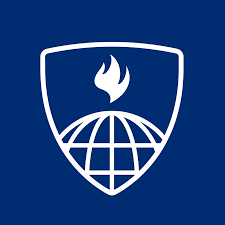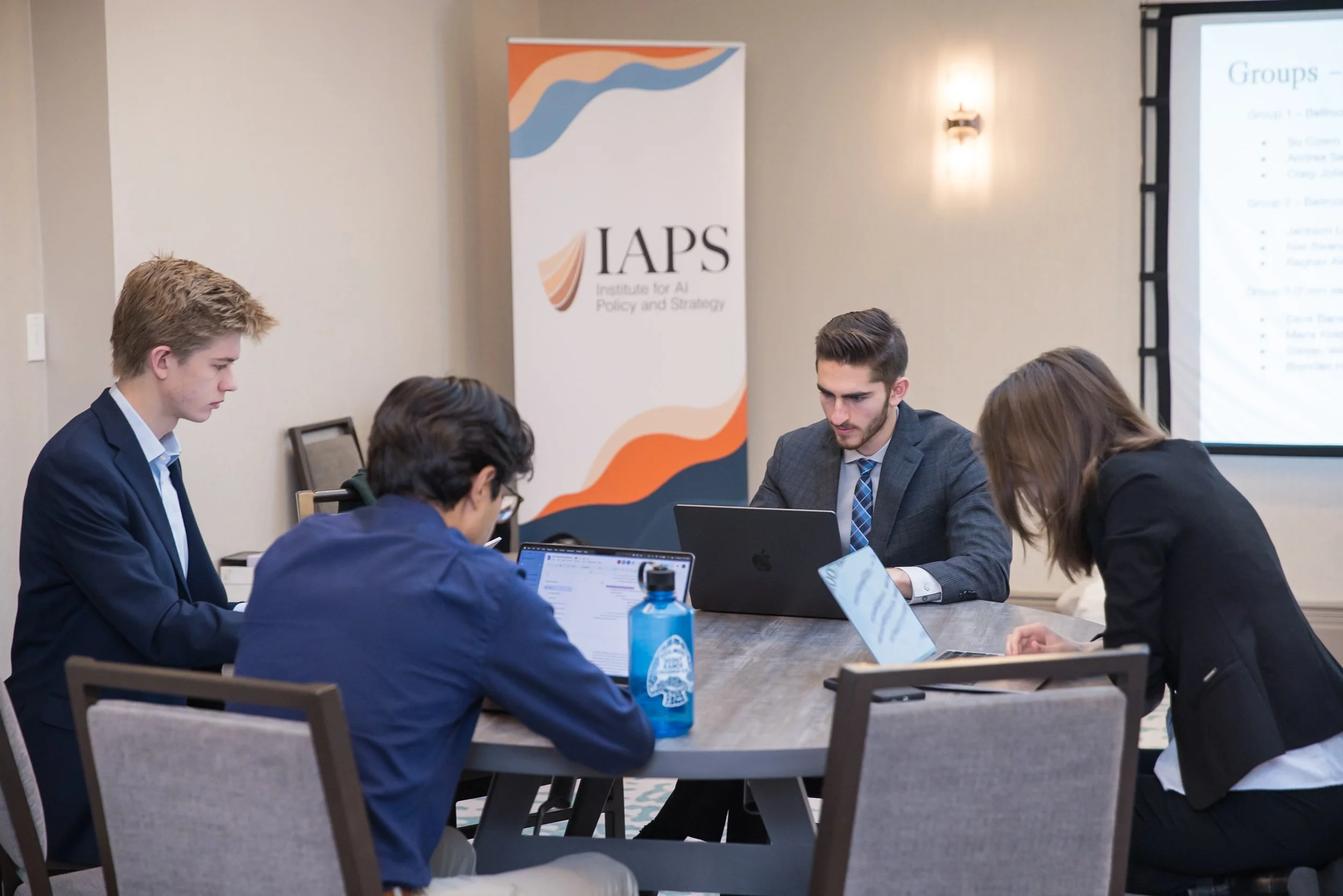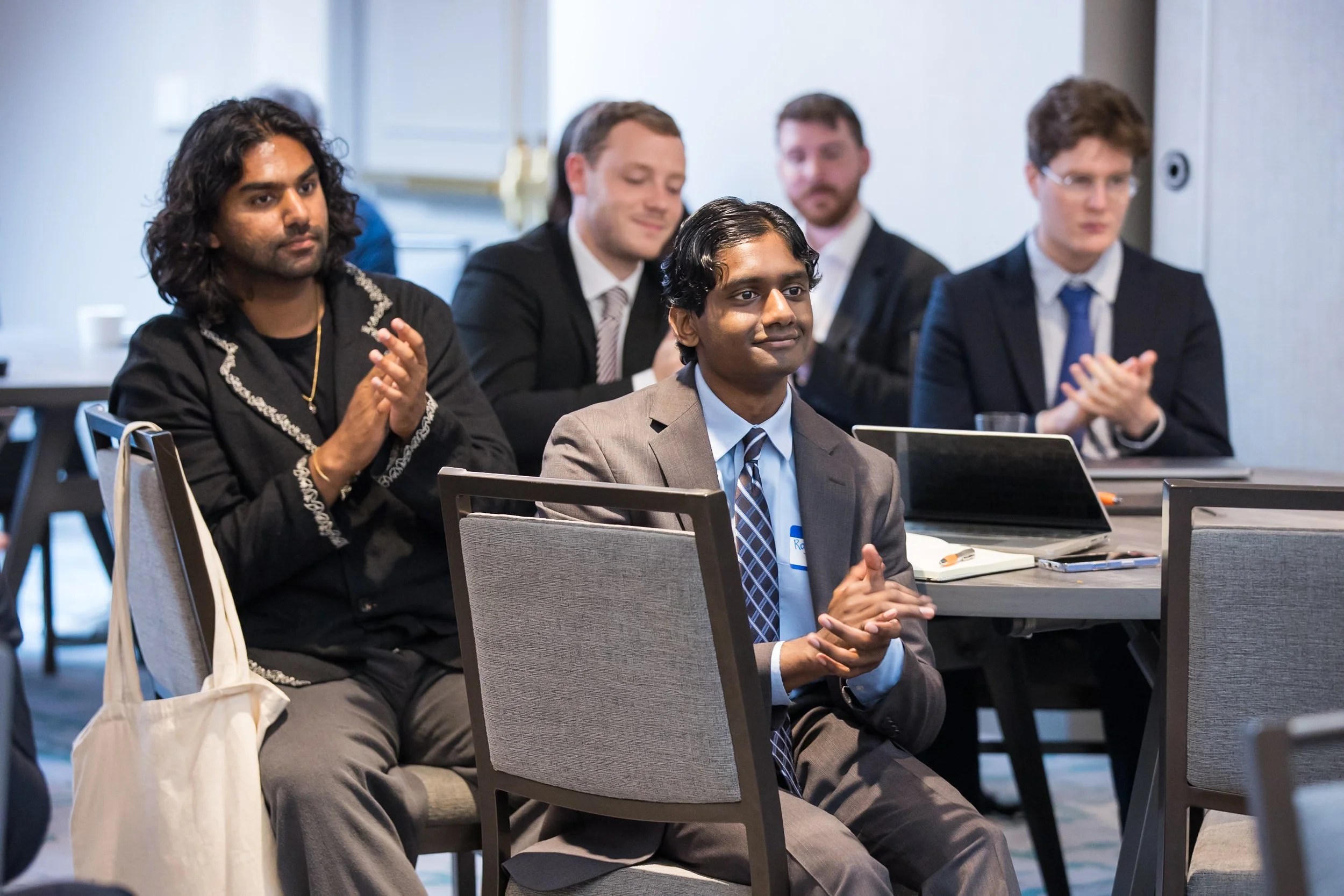AI Policy Fellowship 2026
The IAPS AI Policy Fellowship is a fully-funded, three-month program for professionals from varied backgrounds seeking to strengthen practical policy skills for securing a positive future in a world with powerful AI.
Applications are now closed. To get notified when applications for our Fall 2026 cohort open in April, sign up to our newsletter.
Fellowship Overview
-

Dates and Location
June 1st to Aug 21st
D.C. or remoteApplicants may choose to do the Fellowship fully in-person in D.C. or remotely.
All fellows will come together for a required in-person residency in D.C. on June 1-12.
-

Financial Support
Senior Fellows will receive $22,000 and Fellows will receive $15,000 as a stipend to work full-time during the 3-month program.We can provide part-time options for exceptional candidates.
We can provide financial support for travel and accommodation for the two-week D.C. residency.
-

Day-to-day
Fellows work independently on projects such as writing policy memos and reports, briefing government officials, and organizing ambitious convenings.
They have weekly meetings with their mentor and an IAPS manager, and present their work in the final week.
-

Who Should Apply
We welcome applicants with policy and technical backgrounds (e.g., industry, government, think tanks) at various seniority levels. Fellows range from those in the middle of their undergraduate studies to those with decades of experience. The common thread is a solid understanding of their subject matter, the AI policy priorities IAPS focuses on, or both.
About IAPS
The Institute for AI Policy and Strategy (IAPS) is a nonpartisan think tank that produces policy research to address the implications of AI, from today’s most advanced models to potential AGI and superintelligence. Our work equips policymakers and industry leaders to protect innovation while navigating high-magnitude risks and opportunities at the intersection of AI, national security, and geopolitics.
About the Fellowship
Fellows join IAPS to conduct an independent AI policy project, with mentorship from a leading expert in the field. Each fellow is paired with a mentor, either from the IAPS team or from within in our network.
Tackle real-world AI policy challenges
Fellows will begin with a two week, in-person residency in D.C. for the start of the Fellowship, from June 1-12th. During the kickoff residency, they will explore the AI policy landscape and get the opportunity to meet other fellows, IAPS researchers, and a variety of AI policy experts.
Afterwards, they will spend the remaining 10 weeks working with an AI policy expert, who will mentor them on projects that will influence national and global AI policies. Key policy fields include national security implications of AI, government acquisition and procurement of AI, CBRN capabilities of AI models, export controls, evaluations, geopolitics of AI, hardware-enabled mechanisms, jurisdictionally-focused policy questions (e.g., U.S., U.K., and E.U.), among several others.
Fellows’ projects can have a variety of formats depending on each expert and fellowship coordinator, and will be set in partnership with each fellow. Examples of projects that fellows have worked on include:
Authoring policy briefs or memos
Giving briefings or presentations to government officials
Writing or contributing to a research report
Organizing a 200-attendee international conference
Publishing an op-ed about a salient or neglected AI policy issue
Providing strategic advice to a think tank expanding their operations to a new jurisdiction
Helping streamline the operations of a newly-created AI policy organization
Shaping the strategy for and helping run a track II event
These concrete outputs help strengthen fellows’ AI policy track record while achieving impactful outcomes.
Preparing you for after the Fellowship
The Fellowship is designed to support a smooth transition into an AI policy career. Whether you're aiming to work in government, a think tank, or industry, the program equips you with the skills, knowledge, and connections needed to succeed.
In addition to working closely with a leading expert in the field, fellows receive:
Weekly one-on-one coaching from an IAPS Fellowship Coordinator focused on career development, project management, and productivity;
Ongoing support from IAPS researchers and policy staff, including direct feedback on their projects, such as via weekly work-in-progress sessions;
Access to our professional network, including many networking opportunities during our two-week kickoff in DC; and
Additional financial assistance, in select cases, to support career transitions after the program.
The program is well suited for both those with policy experience looking to transition into AI, or those with AI expertise looking to build more policy experience. Alumni of the Fellowship have gone on to full-time roles in industry, government, and at top think tanks like RAND, the Institute for Progress, the Center for Health Security and IAPS itself.
Join our community in Washington, D.C.
All fellows will begin the program with a two-week in-person residency in Washington, D.C. (June 1–12), where they will connect with the full IAPS team and partner experts. During this time, fellows will meet with their expert supervisor, participate in trainings on AI systems and policy challenges, workshop their Fellowship projects, and take part in a range of events—including roundtables, policy briefings, and informal networking gatherings.
For fellows based in D.C. throughout the program, IAPS will offer office space and regular in-person events to support ongoing collaboration and engagement.
Join remotely from around the world
IAPS welcomes remote fellows from many countries and provides multiple ways to stay connected and engaged. Every fellow (D.C. or remote) receives a support budget that can be used for in-person opportunities, such as attending conferences or meeting with their assigned expert.
As a remote-first organization, IAPS has the systems and experience to fully support remote participation and are able to legally hire in many countries. However, due to administrative or legal constraints, there may be some exceptions. These vary by individual circumstance, and we’ll follow up directly if there are any limitations based on your location. If you have questions about a specific country, feel free to contact us at fellowship@iaps.ai.
-

Andrea Sawka Fiegl
THE FUTURE SOCIETY AND COMMON CAUSE
Andrea partnered with The Future Society's U.S. AI Governance Team to develop evidence-based policy frameworks necessary for ensuring that AI systems are safe and adhere to fundamental human values. She brings 15+ years of experience at USAID and on the Senate Foreign Relations Committee.
She now works at Common Cause on emerging technologies and democratic resilience.
-

Dave Banerjee
IAPS
Dave wrote a report on AI integrity--ensuring that AI systems are not tampered with, backdoored, or have secret loyalties--during the Fellowship. His research interests include securing frontier AI systems and preventing AI-driven power centralization.
Dave Banerjee is now a research associate at IAPS and a research manager at ERA.
-

Tao Burga
INSTITUTE FOR PROGRESS
Tao worked with the Institute for Progress (IFP) and the Center for a New American Security (CNAS) on translating compute policy proposals for government and industry audiences.
He is now a full-time Technology Fellow at IFP. -

Sumaya Nur Adan
UNIVERSITY OF OXFORD
Sumaya wrote a commentary piece on the international network of AI Safety Institutes with IAPS.
She later went on to co-found the Center for AI Security and Access, and pursue a DPhil in Computer Science at the University of Oxford.
Selected Mentors
-

Oliver Guest
INTERNATIONAL STRATEGY
Oliver is the Research Manager leading the International Strategy team at IAPS. His work particularly focuses on geopolitical dynamics around the governance of advanced AI, as well as the AI landscape in China.
He has an MA in Security Studies from Germany’s Institute for Peace Research and Security Policy, where he specialized in emerging technologies and graduated at the top of the cohort. Oliver is also an affiliate of the Safe AI Forum. -

Melissa Hopkins
AIxBIO
Melissa is the Senior Policy Advisor at the Johns Hopkins Center for Health Security, where she works to bridge the gap between academics and policymakers. Melissa led the development of the Gene Synthesis Screening Information Hub and is a PI on the Center's AIxBio project.
Melissa brings years of experience working on and around Capitol Hill, most recently serving as Legislative Fellow to Representative Anna G. Eshoo in the US House of Representatives, specializing in technology issues, including risks posed by biotechnology. Previously, Melissa served as Law Clerk for the House Oversight Committee and as an intern for Representative Kweisi Mfume. Melissa graduated from The George Washington University Law School.
-

Cara Labrador
FRONTIER SECURITY
Cara is a Senior Researcher on the Frontier Security team at IAPS with a background in the intersection of technology and national security.
Prior to IAPS, Cara worked in the Global Technology Practice at a national security advisory firm based in Washington, D.C. Cara previously served as an Editorial Associate at the Council on Foreign Relations. She holds a Master in Public Affairs from Princeton University’s School of Public and International Affairs and a Bachelor of Arts in Government and Classical Studies from Dartmouth College.
Frequently Asked Questions
-
No. The Fellowship is designed to train professionals from a variety of backgrounds and no technical expertise is expected. We have historically accepted fellows with varying work and educational experience. Showing a demonstrated interest and fluency in the AI topics that IAPS focuses on is a key part of the selection process.
-
No. This program is designed to accommodate people without prior experience in policy, though individuals with policy experience are very welcome to apply.
-
We encourage you to apply if you have an interest in our work and are considering using your career to work in policy to address the lasting implications of frontier AI. We are interested in candidates from a broad set of professional backgrounds.
When assessing applications, we look for candidates who demonstrate good judgement and a strong aptitude for understanding the implications of AI. Strong research and writing skills are a strong plus, but are not necessary, as not all fellows will be working on research-oriented placements.
-
There are three stages: the application form, a 3-hour written task coupled with a pre-recorded 30-min interview, and a 60-min live interview with an IAPS team member. We expect to finalize selection by the end of April.
-
The Fellowship is a talent development program. We hope that fellows will gain skills and experiences through their participation that enable them to contribute to the most important problems in AI policy. We believe that addressing the implications of frontier AI will be difficult and will require a strong policy talent, and that IAPS is well suited to identifying, supporting, and training talent to enter the field.
-
We expect to select approximately 30 fellows in total, but exact cohort size will depend on the composition and quality of our applicant pool.
-
You will choose a project in collaboration with your mentor. Fellows will typically work on a project of interest to the mentor – i.e. a research question the mentor has been wanting to explore, or supporting on an event they are planning to run. If fellows have a strong pitch for their Fellowship project, we can work with them to find an appropriate mentor.
-
Once fellows are selected, IAPS will get information from fellows to understand their project/mentor preferences, and then work with our researchers and network to facilitate an appropriate match. Mentors will have the final say on choosing to work with a fellow.
-
We can provide part-time options for exceptional candidates who have day jobs or other commitments. However, the default is for fellows to undertake the program full-time, and the number of part-time fellows we typically have is limited.
-
Only candidates who have the right to work in the U.S. between June 1st and August 21st, 2026 are eligible to apply, as we are not able to sponsor visas for this Fellowship.
-
As a remote-first organization, IAPS has the systems and experience to fully support remote participation and are able to legally hire in many countries. However, due to administrative or legal constraints, there may be some exceptions. These vary by individual circumstance, and we’ll follow up directly if there are any limitations based on your location. If you have questions about a specific country, feel free to contact us at fellowship@iaps.ai.
-
Yes. If you are eligible and interested in both options, we recommend you select both boxes in the application form.
-
Not by default. We will consider additional support based on need in exceptional circumstances.
-
Candidates will be selected based on experience and expertise.
-
We will have programming among Senior Fellows to strengthen their connections among themselves, and may plan additional events that are specific to senior fellows, but that is not confirmed at this time. Senior Fellows will also receive a higher stipend in order to reflect their expertise, and will likely have more flexibility in choosing their Fellowship project and mentor.
-
Yes, under exceptional circumstances we can shift the start date to a few weeks later than June 1st, 2026, though in this case, fellows will miss some or all of the in-person programming in DC that will take place June 1-12.
The fellowship will end on Aug 21 by default, but we may offer Fellowship extensions in some circumstances or explore other options of continued collaboration, such as contracting former fellows for specific projects.
-
Senior Fellows will receive $22,000 and Fellows will receive $15,000 as a stipend to work full-time during the 3-month program. We can provide part-time options for exceptional candidates. Fellows will also get access to healthcare benefits and a professional development stipend for the duration of their Fellowship.
-
We provide invitation letters to support the visa process for the two-week D.C. residency. However, we cannot provide additional individual visa support; Fellows will need to obtain their visa for the two-week residency themselves.
Curious about IAPS’s work?
Advanced AI systems pose both immense opportunities and complex challenges. IAPS addresses these with practical policy solutions at the intersection of AI policy and national security through in-depth policy research.
Curious about our past fellows?
Our fellows have secured positions in government, industry, leading think tanks, and academia, founded new projects and organizations, and been recognized on lists of the best AI policy researchers.










